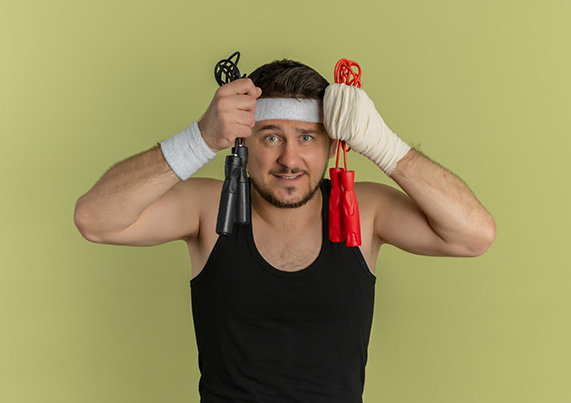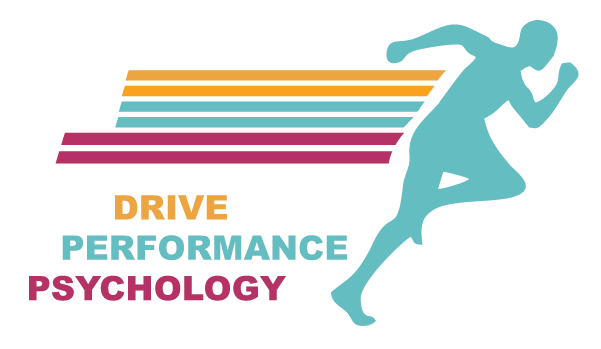

Feeling nervous before a competition is not only normal, but also often a sign of how much you care. That surge of energy, your quickened heartbeat, and heightened alertness are all part of your body preparing to perform. In fact, a certain level of pre-competition nerves can actually help to enhance focus and sharpen reactions. But there’s a tipping point. When nerves become overwhelming and distracting, leading to negative self-talk and even physical symptoms like nausea, they can shift from being helpful to harmful. Instead of fuelling performance, they can interfere with it, turning excitement into anxiety and even stripping the joy out of sport altogether. Learning to manage this fine line is key to not only competing well but also enjoying the process.
Your nerves don't just show up for no reason. They’re usually triggered by something specific. Maybe it’s the fear of failing, especially if you’re putting a lot of pressure on yourself to succeed. You might worry about letting others down, whether it's your coach, your teammates, or your parents, or feel like all eyes are on you. Sometimes it’s the feeling that you haven’t prepared enough, even when you’ve been putting in the work. Or maybe it’s just the sheer importance of the event that makes everything feel heavier. The truth is, the more it matters to you, the more likely those nerves are to kick in. But the good news is that once you understand what’s triggering them, you’re in a better position to manage them
Nerves don’t have to be the enemy. In fact, they can actually help you perform better by getting your body alert and focused. The key is learning how to embrace that energy instead of letting it take over. One way to manage this is by shifting how you view your nerves. Instead of thinking “I’m nervous,” try telling yourself “I’m ready” or “My body is preparing to compete.” This simple mental switch can help calm your mind and refocus your energy in a more positive direction. Another helpful tactic is to become aware of how nerves show up for you. Is it a racing heart? Tight shoulders? Sweaty palms? Recognising these physical signs early allows you to act before the anxiety grows stronger. Ultimately, it’s about training your mind just like you train your body. With the right tools, you can channel that nervous energy into performance rather than letting it hold you back.

Here are a few simple tools that you can use to help keep your nerves at a manageable level:
Breathing Techniques: Take a moment to pause
When nerves start to take over, your breathing is usually affected, often without being aware of it. Deep, slow breathing activates the parasympathetic nervous system, which helps calm your body’s fight-or-flight response. Try diaphragmatic breathing, where you breathe deeply into your belly rather than shallowly into your chest. Another effective method which I suggest to athletes, is box breathing. To do this, simply inhale for four counts, hold for four, exhale for four, and hold again for four. Repeat this for a few rounds to slow your heart rate and centre your mind. You can also imagine drawing the lines of a box or a square whilst you do this.
Visualisation: See yourself being successful before it happens
Visualisation isn’t just for relaxation; it’s also a powerful tool to improve performance. Before stepping onto the field, court, pool… take a few moments to mentally rehearse your routine or performance. Picture yourself moving gracefully, executing skills with confidence, and handling any challenges that come your way. The more vividly you can imagine success, the more likely you are to achieve it. Once you’re able to vividly imagine yourself being successful, consider imagining what may go wrong, or what you’re worried about happening – then picture how you would overcome these challenges or setbacks. This allows you to take back the control. If you’ve already imagined it and handled it before, this will help you to stay calm in the moment.
Self-Talk: Replace the doubt with confidence
The way you talk to yourself plays a huge role in how you handle nerves. If you catch yourself thinking “I’m not ready” or “What if I fail?”, reframe those thoughts into something more constructive. Use positive performance cues like “I’ve done the work” or “I can handle this.” Having a set mantra that you repeat to yourself, especially during stressful moments, can help you stay focused and in control. Self-talk isn't about denying the nerves, it’s about quieting the negative and reinforcing the positive.
Reach your goals
My aim is to help others reach their goals, by recognising and working through any challenges that are limiting them from achieving their potential.
Code of Conduct
I work within the ethical guidelines of the CASES Code of Conduct and our work together will be kept confidential unless otherwise requested.

